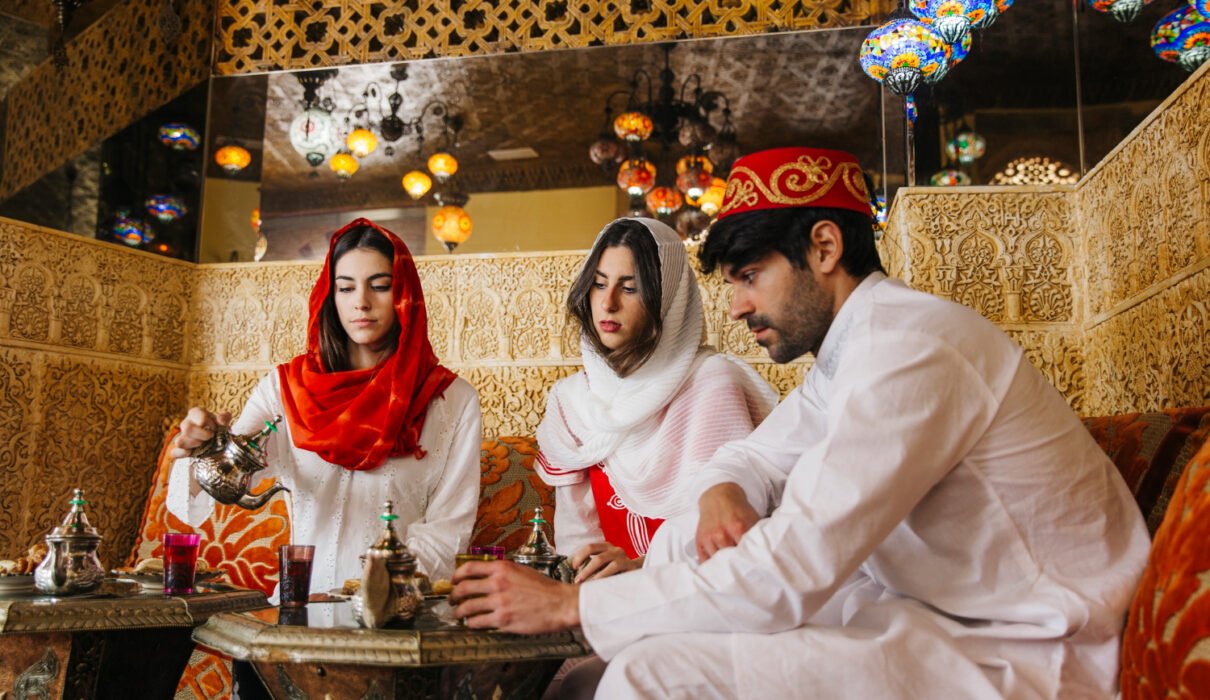Introduction:
The holiday season, particularly Christmas, is one of the most widely celebrated events globally. As December approaches, cities light up, shops prepare for gift sales, and people gather to celebrate the birth of Jesus Christ. One common question that arises is, “Do Muslims celebrate Christmas?” While Christmas is mainly a Christian holiday, exploring the Muslim perspective on this festive occasion requires a closer look at their religious beliefs, cultural practices, and traditions.
The Islamic Perspective on Christmas
Muslims do not typically celebrate Christmas as a religious holiday. Christmas, in its essence, commemorates the birth of Jesus Christ (known as Isa in Islam), who is considered a prophet in Islam but not the Son of God. This theological difference forms the primary reason why Christmas is not part of Muslim religious celebrations. In Islam, prophets, including Jesus, hold a special place of reverence, but the Islamic faith doesn’t center around the birth or death of these prophets. Therefore, while Muslims respect Jesus as one of the greatest prophets, they do not celebrate Christmas in the same way that Christians do.
What Do Muslims Celebrate Instead of Christmas?
Muslims do not traditionally celebrate Christmas because the holiday is centered around beliefs that are specific to Christianity. While Muslims do revere Jesus as a prophet, they do not consider him the son of God or a divine being. According to Islamic teachings, Jesus was a messenger of God who preached monotheism and performed miracles, but he was not crucified, nor did he rise from the dead, as Christians believe.
Instead of Christmas, Muslims celebrate two major religious holidays: Eid al-Fitr and Eid al-Adha.

Eid al-Fitr:
- This festival marks the end of Ramadan, the Islamic holy month of fasting. After 29 or 30 days of fasting from dawn to sunset, Muslims around the world gather with family and friends to celebrate the successful completion of the fast.
- On Eid al-Fitr, Muslims offer a special prayer, share festive meals, give charity (Zakat al-Fitr) to those in need, and exchange gifts. It is a day of gratitude, where Muslims thank Allah for giving them the strength and discipline to fast during Ramadan.
Eid al-Adha:
- Eid al-Adha, or the Festival of Sacrifice, remembers how Prophet Ibrahim (Abraham) was willing to sacrifice his son Ismail (Ishmael) to obey God’s command. However, just as Ibrahim was about to sacrifice his son, God provided a ram to sacrifice instead.
- During Eid al-Adha, Muslims who can afford it sacrifice an animal, such as a sheep, goat, or cow, and distribute the meat among family, friends, and the less fortunate.
Both of these holidays emphasize themes of community, charity, and gratitude to God, which are central to Islamic faith. They hold profound religious significance for Muslims, akin to how Christmas is significant for Christians.
Why Do We Celebrate Christmas?
To understand why Muslims do not celebrate Christmas, it’s essential to dive into why Christmas is celebrated by Christians. Christmas, celebrated on December 25th by the majority of Christians, marks the birth of Jesus Christ. In Christian belief, Jesus is God’s Son, born to Mary, a virgin, in the town of Bethlehem. His birth is considered a miraculous event, fulfilling prophecies from the Old Testament and marking the beginning of salvation for humanity.
For Christians, the birth of Jesus signifies hope, peace, and the arrival of a Savior who would ultimately give his life for the sins of humanity. Christmas is not just a time to reflect on Jesus’ birth but also on his teachings, his life, and the promise of eternal life that his resurrection brings.
In modern times, Christmas has also taken on a cultural and secular significance beyond its religious roots. Many people around the world, regardless of their faith, engage in Christmas traditions like decorating trees, exchanging gifts, and gathering with family and friends. The spirit of generosity, love, and togetherness during the Christmas season appeals to people from all walks of life.

Why is Christmas Celebrated on the 25th December?
The choice of December 25th as the date for celebrating Christmas is not based on any specific biblical account of Jesus’ birth. In fact, the Bible does not mention the exact date of Jesus’ birth. So, why December 25th?
Before Christianity became the dominant religion of the Roman Empire, the Romans celebrated a festival known as Sol Invictus (the Unconquered Sun) on December 25th. This was a day to honor the winter solstice, marking the time when the sun began to regain its strength after the darkest days of the year.
The Roman Emperor Constantine, after converting to Christianity, may have chosen December 25th to align the birth of Christ with the pre-existing pagan festival, making it easier for the Roman population to transition to Christianity. Thus, the date had both symbolic and strategic importance, linking the “light of the world” (Jesus) to the return of the sun’s strength after the winter solstice.
While this date has become a cornerstone of Christian tradition, it is important to recognize that the theological significance of Christmas is more important than its historical origins.
Cultural Interactions: Muslims and Christmas in Modern Times
Though Muslims do not celebrate Christmas in a religious sense, it is not uncommon for Muslims living in predominantly Christian countries to engage in certain cultural aspects of the holiday season. For example, some Muslim families may exchange gifts, participate in charity events, or join in Christmas dinners with friends or coworkers out of respect for their neighbors’ traditions or to foster community spirit.
However, it’s essential to distinguish between participating in cultural traditions and religious practices. While Muslims may respect and enjoy the cultural elements of Christmas, their religious faith remains centered around Islamic teachings, and their celebrations focus on their own religious holidays, such as Eid al-Fitr and Eid al-Adha.
In many multicultural societies, it’s not unusual to see interfaith friendships and shared experiences during the holiday season. Some Muslims may take this opportunity to explain their faith and holidays, allowing for a greater understanding between communities.
Mutual Respect and Coexistence
In today’s interconnected world, mutual respect and understanding between different religious and cultural groups are more important than ever. The holiday season, whether it involves Christmas, Hanukkah, Eid, or other celebrations, provides a perfect opportunity to reflect on the values that unite people: love, kindness, and generosity.
While Muslims may not celebrate Christmas as Christians do, this time of year can still be a moment to foster friendship, tolerance, and understanding. The focus should not solely be on religious differences but on shared values of family, charity, and community.
Conclusion:
The question “Do Muslims celebrate Christmas?” has a straightforward answer: no, not in the religious sense. However, the relationship between Muslims and Christmas varies depending on cultural interactions and the context in which Muslims live. In predominantly Christian countries, some Muslims may partake in cultural aspects of the holiday season, but their religious celebrations focus on their significant holidays, such as Eid al-Fitr and Eid al-Adha. Ultimately, whether one celebrates Christmas, Eid, or any other holiday, the season is a time to reflect on shared values of peace, compassion, and understanding among all people, regardless of faith.
Discover amazing information and unique finds on FuseBay! Don’t miss out—must visit our website for exclusive articles and top-notch blogs tailored just for you!








